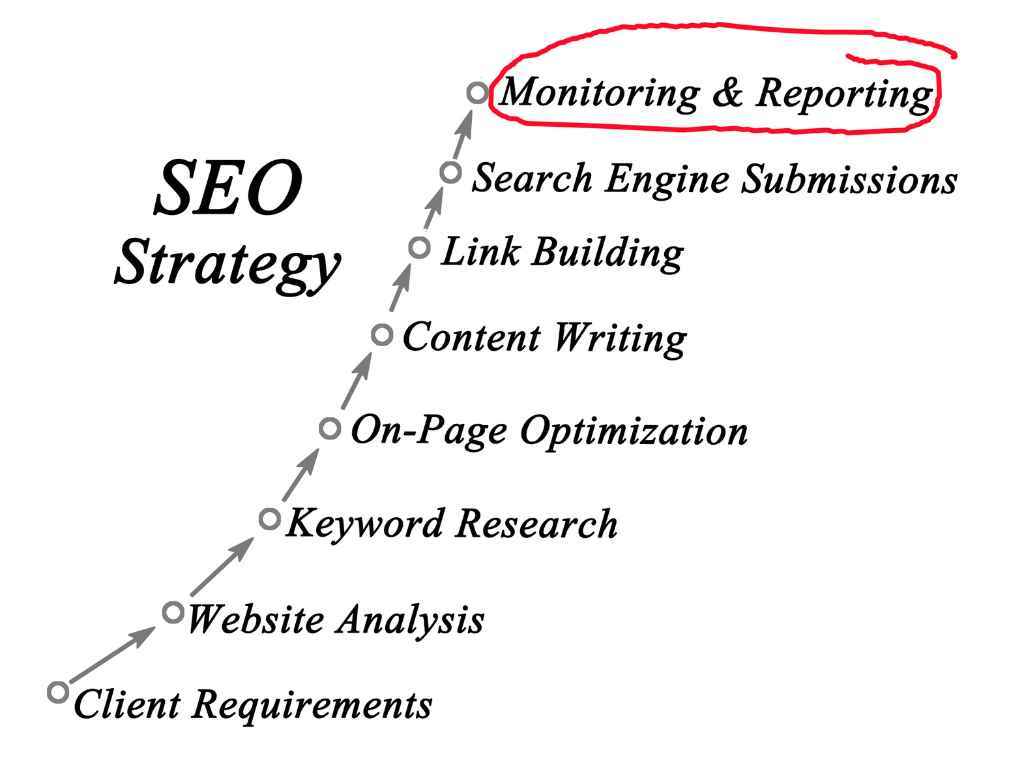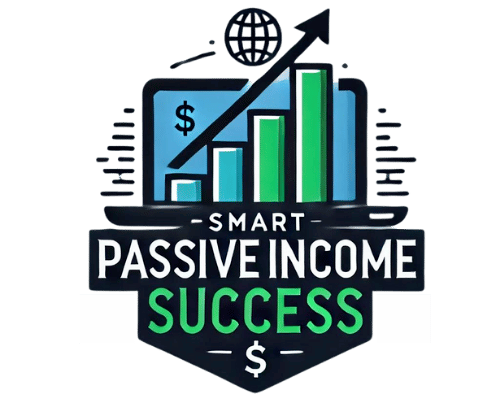In the dynamic world of affiliate marketing, the difference between a thriving online business and one that merely exists often boils down to one crucial aspect: optimizing your website for search engines. It’s a digital battleground where visibility is king, and your ability to rank high in search engine results can significantly influence your site’s success. This isn’t just about drawing in vast numbers of visitors; it’s about attracting the right audience—potential customers who are actively searching for what you have to offer.
SEO, or Search Engine Optimization, is the cornerstone of your digital presence, combining technical strategies with the art of content creation to deliver a user experience that’s both rewarding and authoritative. But make no mistake, optimizing your affiliate website for search engines goes beyond the mere mechanics of SEO; it’s about understanding the heart and soul of your audience, crafting content that resonates on a personal level, and establishing your site as a beacon of expertise and trust.
As we embark on this SEO journey together, we’ll delve into the principles of E-E-A-T (Experience, Expertise, Authoritativeness, and Trustworthiness), explore strategic keyword research, and uncover the secrets to creating content that captivates both your audience and search engines. Whether you’re a seasoned affiliate marketer or just starting, mastering the art of SEO is your golden ticket to unlocking the full potential of your online venture.
Table of Contents
The Foundation of SEO for Affiliate Marketers

When you embark on the journey of affiliate marketing, one truth becomes undeniably clear: without a solid understanding and implementation of SEO, even the most well-designed website might languish in obscurity. SEO is your beacon in the vast digital ocean, guiding potential customers to your shores. But what does it really mean to optimize your website for search engines?
Understanding SEO Beyond Search Engines

At its core, SEO is about more than just pleasing algorithms and climbing search engine rankings. It’s about creating a digital environment where your target audience can find you at the exact moment they need you. This synchronization of need and discovery is the magic of SEO. It’s not just about being seen; it’s about being found by the right people, at the right time, with the right solution.
The evolution of search engine algorithms has brought us to a point where the user’s experience and content quality are paramount. Search engines aim to serve users the most relevant, valuable, and authoritative content. This is where the concept of E-E-A-T (Experience, Expertise, Authoritativeness, and Trustworthiness) comes into play, guiding every piece of content you create.
The Pillars of E-E-A-T and Your Content
- Experience: Your unique perspective and personal insights into the products or services you promote add depth to your content. It’s about sharing real experiences that resonate with your readers, making your website relatable and engaging.
- Expertise: Demonstrating a deep understanding of your niche establishes you as an expert. Whether through detailed product reviews, how-to guides, or insightful analysis, your content should showcase your knowledge and command of the subject.
- Authoritativeness: Building authority in your niche goes beyond individual pieces of content. It involves earning recognition from your audience and peers, through consistent publication of high-quality content, and engagement within your community.
- Trustworthiness: Trust is the cornerstone of any successful affiliate website. Clear disclosure of affiliate links, honest reviews, and transparent practices build credibility with your audience and search engines alike.
Optimizing your website for search engines starts with embracing these principles in every content piece you publish. It’s about striking a balance between strategic keyword use and providing genuine value that meets your audience’s needs and expectations.
By focusing on quality over quantity, you lay the groundwork for a website that not only ranks well but also genuinely serves your visitors. In the vast landscape of the internet, this focused approach is how you stand out, build a loyal following, and turn clicks into conversions.
Related Post: How to Build a Successful Affiliate Marketing Website
Building Your SEO Strategy

A robust SEO strategy is like a map guiding you through the competitive landscape of affiliate marketing. It begins with two crucial steps: understanding your audience and selecting the right keywords. Let’s break down these steps to ensure your affiliate website not only attracts visitors but engages and converts them.
Keyword Research and Selection

Embarking on keyword research is akin to mining for gold; it’s about uncovering the terms and phrases that your potential customers are using to search for the products or services you promote. But it’s not just about volume; relevance and intent are your guiding stars here.
- Tools and Techniques for Finding the Right Keywords: Leverage tools like Google Keyword Planner, Jaaxy, Ahrefs, or SEMrush to gather insights on search volume, keyword difficulty, and competitor analysis. These tools offer a window into the words your audience uses and the content landscape of your niche.
- The Importance of Buyer Keywords: Focus on ‘buyer keywords,’ which are phrases indicating a readiness to purchase, such as ‘best gaming laptop under $1000’ or ‘affordable SEO services for small business.’ These keywords signal high intent and can guide your content strategy toward topics that attract visitors who are further along in the buying cycle.
On-Page SEO Essentials

With a solid list of targeted keywords in hand, the next step is weaving them into your website’s fabric. On-page SEO is your toolkit for making each page on your site an entry point for potential customers.
- Optimizing Titles, Headers, and Meta Descriptions: Your title tags and headers should not only include your primary keywords but also capture the reader’s interest. Meta descriptions provide a brief overview of what each page offers, serving as your pitch to potential visitors in search results.
- Content Quality and Its Impact on SEO: High-quality, informative content is the cornerstone of on-page SEO. Beyond integrating keywords, your content must address the needs and questions of your audience, providing real value. This approach establishes your site as a reliable resource, encouraging longer visits and higher engagement rates.
By meticulously researching keywords and applying on-page SEO principles, you’re setting the stage for a website that attracts qualified traffic. Remember, SEO is not a one-time effort but a continuous process of refinement and adjustment. Stay tuned to your audience’s evolving needs and search engine updates to keep your strategy sharp and effective.
Related Post: How to Track and Analyze Affiliate Marketing Metrics
Enhancing Your Website's User Experience (UX) for Better Rankings

A seamless and enjoyable user experience (UX) is paramount for keeping visitors engaged on your affiliate website. But UX isn’t just about aesthetics; it’s about creating a smooth, intuitive journey for your users from the moment they land on your site to the moment they leave, and ideally, making them want to return. Here’s how to refine your UX for better engagement and rankings.
Speed Optimization Techniques

Tools for Improving Website Speed: A fast-loading website is crucial for keeping visitors engaged. Use tools like Google PageSpeed Insights to analyze and improve your site’s loading times. This might involve optimizing images, leveraging browser caching, and minimizing CSS and JavaScript.
Mobile Responsiveness and SEO

Testing and Improving Mobile Usability: With the majority of web traffic now coming from mobile devices, your site must perform flawlessly on every screen size. Google’s Mobile-Friendly Test can help you identify areas for improvement, ensuring your site is accessible and enjoyable for mobile users.
Navigating Your Website with Ease

Design and Navigation Best Practices: A clean design and intuitive navigation structure allow users to find what they’re looking for without frustration. A clear menu, well-organized content categories, and a straightforward path to affiliate products enhance user satisfaction and can contribute to higher conversion rates.
Enhancing UX is an ongoing process that directly impacts your site’s effectiveness and search engine rankings. By prioritizing speed, mobile responsiveness, and ease of navigation, you’re not just optimizing for search engines; you’re creating a website that people love to use. This positive user experience signals to search engines that your site is a valuable resource, helping to improve your rankings and drive more targeted traffic.
Related Post: The Importance of Building Relationships in Affiliate Marketing
The Ultimate Affiliate Marketing Guide: Sign Up Now for Exclusive Tips and Strategies!
Building Authoritative Backlinks

In the realm of SEO, backlinks serve as endorsements of your website’s credibility and authority. However, not all backlinks are created equal. To truly bolster your SEO, focus on acquiring high-quality backlinks from reputable sources within your niche.
White-Hat Strategies for Backlink Acquisition
- Crafting top-notch content naturally attracts backlinks because it offers value that others in your industry will want to share. This could be original research, comprehensive guides, or insightful analyses that stand out in your field.
- Guest posting on reputable sites not only exposes you to a broader audience but also provides an opportunity to earn valuable backlinks. Choose websites with a strong domain authority and a related audience to maximize the impact.
- Participating in industry forums and collaborating with influencers can also lead to natural backlink opportunities. Engaging with your community and offering valuable input can make your site a recognized authority worth linking to.
Quality over quantity is the mantra when it comes to backlinks. A few well-placed links from trusted sites in your niche can do more for your SEO than numerous low-quality links. Remember, building backlinks is a gradual process that reflects the growing authority of your website.
Related Post: Selecting Affiliate Programs For Your Affiliate Website
Content is King: Value-Driven Strategies for Affiliates

At the heart of any successful SEO strategy is compelling, valuable content. For affiliate marketers, this means going beyond mere product promotion to establish your site as a trusted resource.
Developing Pillar Content for Your Niche

Pillar content is the cornerstone of your site’s content strategy. It should cover key topics in your niche comprehensively and serve as a go-to resource for your audience. This content not only attracts visitors but also encourages them to explore your site further, increasing their engagement and the likelihood of conversion.
Refreshing and Updating Existing Content

The digital landscape is ever-evolving, and so should your content. Regularly updating your posts to keep them relevant and accurate not only serves your readers but also signals to search engines that your site is a current and reliable source of information.
Comprehensive Guides and Resource Pages

In addition to product reviews, consider creating detailed guides and resource pages. These can provide immense value to your readers and present opportunities to include affiliate links in a context that genuinely assists them, further establishing your credibility and authority.
In crafting your content, remember that perfection is not the goal on your first attempt. The key is to start with a strong foundation and remain open to learning and adapting. By focusing on providing real value through your content, you can enhance your site’s SEO performance, attract a loyal following, and ultimately, drive more conversions.
Related Post: Creating Effective Affiliate Marketing Content
Leveraging Analytics for SEO Improvement

In the fast-paced world of affiliate marketing, intuition alone won’t cut it. Data analytics become your eyes and ears, offering insights into what’s working and what needs tweaking. Here’s how to make analytics work for your SEO strategy.
Monitoring Your SEO Performance
- Essential SEO Metrics to Track: Keep a close eye on metrics like organic traffic, bounce rate, conversion rates, and keyword rankings. These indicators help you understand your audience’s behaviour and how effectively your content resonates with them.
- Using Analytics to Refine Your SEO Approaches: Tools like Google Analytics and Google Search Console provide a wealth of data. Analyze this information to identify trends, understand user pathways, and pinpoint areas for improvement. For instance, if certain pages have high bounce rates, consider revising the content or improving the page layout.
Adapting Your Strategy Based on Data
- SEO is not a set-it-and-forget-it task. It requires ongoing attention and adjustment. Use the insights gathered from analytics to continuously refine your content strategy, keyword focus, and on-page optimization techniques.
- Testing different approaches and measuring the outcomes is crucial. A/B testing can reveal what types of headlines, content formats, or page designs most effectively engage your audience and lead to conversions.
Related Post: The Benefits of Starting an Affiliate Website
The Ultimate Affiliate Marketing Guide: Sign Up Now for Exclusive Tips and Strategies!
Conclusion: A Continuous Journey in SEO

Optimizing your affiliate website for search engines is a journey, not a destination. The digital landscape is continually evolving, and so are the strategies that drive success in SEO. By embracing a mindset of continuous learning and adaptation, you can keep your website aligned with the best practices and ahead of the competition.
Solidify Your Site's Trust and Authority
Remember, the core of E-E-A-T lies in building a site that’s recognized for its expertise, authoritativeness, and trustworthiness. Every piece of content, every backlink, and every user interaction plays a role in strengthening these attributes.
Embrace Adaptability and Learn from Analytics
Staying adaptable, learning from your analytics, and being willing to adjust your strategies are key to maintaining and improving your website’s search engine rankings. Pay attention to the data, listen to your audience, and never stop optimizing.
Take Action and Keep Evolving
Start with the strategies and insights shared in this guide, but don’t stop there. SEO is a field where the only constant is change. Keep researching, experimenting, and applying what you learn to your website. Your efforts will not only help you rank better but also provide a richer, more engaging experience for your audience.
Optimizing your affiliate website for search engines is a complex but rewarding endeavour. By focusing on creating valuable content, building authoritative backlinks, enhancing user experience, and leveraging analytics for continuous improvement, you can achieve greater visibility, engage more deeply with your audience, and drive success in your affiliate marketing efforts.







What an insightful exploration of the symbiotic relationship between SEO and affiliate marketing! This post elegantly elucidates how optimizing for search engines transcends mere visibility, emphasizing the profound impact it can have on attracting the right audience – those actively seeking the solutions offered.
I particularly appreciate the holistic approach taken, which recognizes SEO as a fusion of technical strategies and compelling content creation. The integration of the E-A-T framework adds a layer of depth, underscoring the importance of not just meeting algorithmic criteria but also resonating with users on a personal level.
Hey Mikael,
Thanks for checking out my blog post. I appreciate your comments on the subject. SEO and Great Content must go together. You can’t have one without the other, as the reader will decide whether it is useful or not. Algorithms will only get you so far…
Take care
John
Hello,Your article offers a thorough and insightful guide to optimizing affiliate websites for search engines, highlighting the critical role of SEO in driving online success. It effectively breaks down complex concepts into digestible chunks, making it accessible for both beginners and seasoned marketers. The emphasis on user experience, content quality, and continuous adaptation aligns well with modern SEO practices, ensuring long-term viability and relevance in the ever-evolving digital landscape. You made a valuable resource for anyone looking to enhance their affiliate marketing efforts and achieve better visibility and engagement online. Well done.
Hey Ela,
Thanks for checking out my blog post. Glad you found it a useful guide.
Regards
John